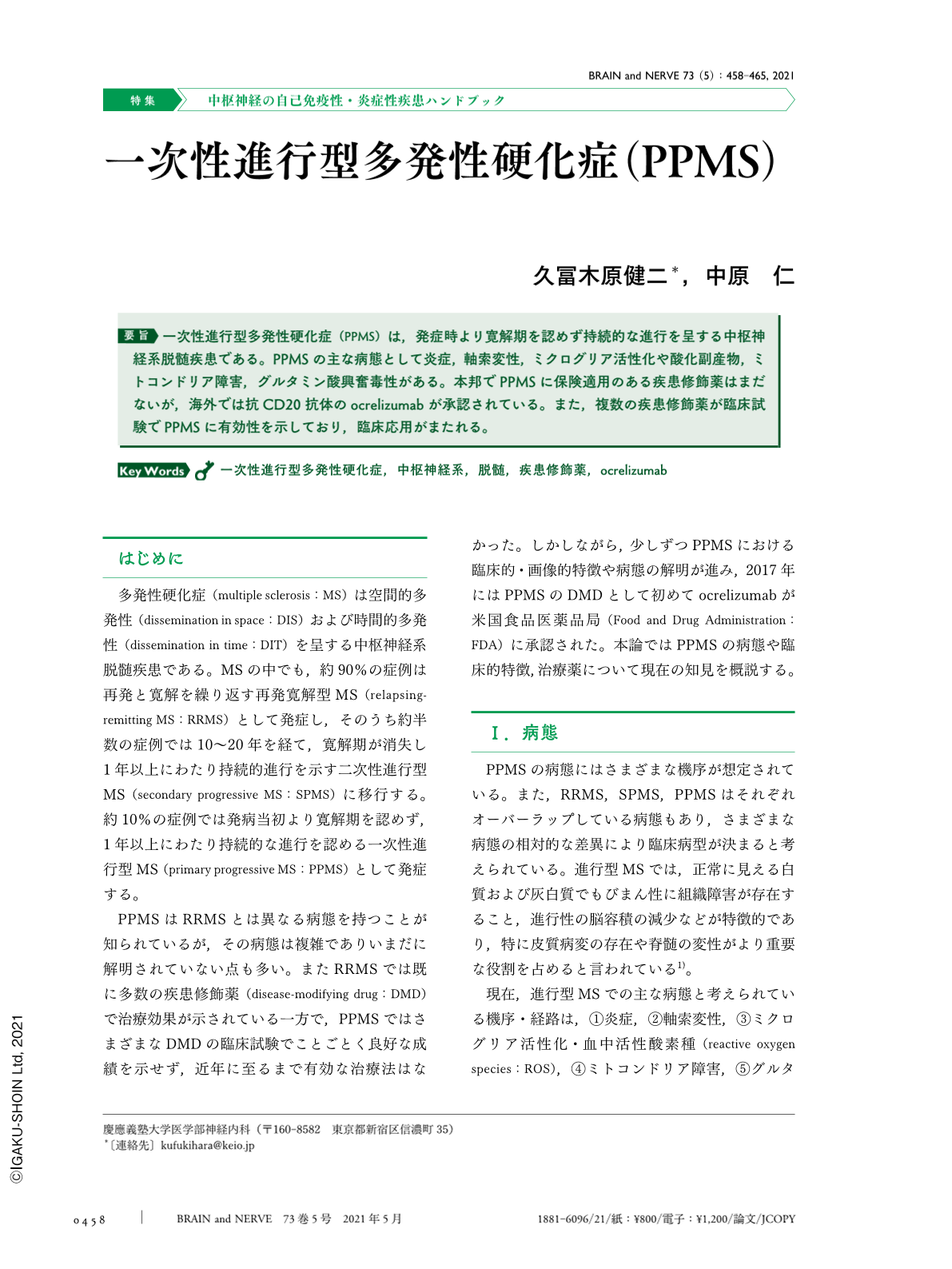Japanese
English
- 有料閲覧
- Abstract 文献概要
- 1ページ目 Look Inside
- 参考文献 Reference
一次性進行型多発性硬化症(PPMS)は,発症時より寛解期を認めず持続的な進行を呈する中枢神経系脱髄疾患である。PPMSの主な病態として炎症,軸索変性,ミクログリア活性化や酸化副産物,ミトコンドリア障害,グルタミン酸興奮毒性がある。本邦でPPMSに保険適用のある疾患修飾薬はまだないが,海外では抗CD20抗体のocrelizumabが承認されている。また,複数の疾患修飾薬が臨床試験でPPMSに有効性を示しており,臨床応用がまたれる。
Abstract
Primary progressive multiple sclerosis (PPMS) is a chronic inflammatory disease of the central nervous system that leads to demyelination and neurodegeneration. PPMS is characterized by a gradual accumulation of disabilities that may occur from the initial disease onset. The pathological processes underlying PPMS are complex and include a variety of different mechanisms and pathways, including inflammation, axonal degeneration, microglial activation/oxidation byproducts, mitochondrial injury, and glutamate excitotoxicity. There is currently no disease-modifying drug approved for PPMS in Japan. However, ocrelizumab, a humanized anti-CD20 monoclonal antibody, has been approved for PPMS by the Food and Drug Administration. In addition, some disease-modifying drugs have demonstrated significant efficacy in the treatment of PPMS in clinical trials.

Copyright © 2021, Igaku-Shoin Ltd. All rights reserved.


